Book Genre: What Is Your Manuscript?

Knowing what genre your manuscript falls into is important for more reasons than just to be technically correct.
Being aware of your genre can help you contextualize your story, help you see where your book falls in a literary lineage, give you fresh perspective on development, and provide you with new directions from which you can deviate or define yourself. Knowing what kind of book—and what kind of writer—you are can also help you see how to pitch your book, whether to an agent or to an audience.
There’s always the chance that your story doesn’t nestle neatly in a specific category—and that’s okay. In fact, it may even mean that you’re onto something delightfully inventive. Overlapping these ideas sometimes leads to some of the most interesting, and successful, stuff being written out there today. We won’t delve too much into the technicalities here, though if you’re intrigued by the possibilities presented by these categories, you should definitely go read up on them.

Remember—just because you may have been writing towards a certain kind of genre, it may not mean that’s what your story actually is.
You may have started off with what you thought was a loosely fictionalized story from your life, but instead have something that more closely resembles a memoir. Or vice versa! Sometimes, what you thought was a short story expands into a fantasy novel. Perhaps that recurring ghost in your family saga is more menacing than you first thought—maybe thinking about horror would help. Be open to possibility.
We have some basic categories of writing listed below, along with some examples of each, and a description of what we see as noteworthy characteristics of each.
Literary Fiction
From the classics you know well to experimental short stories being written today, literary fiction is as broad as it is contested. You can tell something is literary by its style of prose—you could describe it as lyrical or dense, spare or polished. It’s more to do with how it’s written than what is written, though themes are generally realistic. One way to think of it is to say it is “serious”—but that often isn’t entirely the case. Layered, multi-tonal, and moving, literary fiction can be a very rewarding, though challenging, genre to write. Where general, or commercial, fiction tends to be more story-driven, literary fiction draws on aesthetics and plotline both for impact.
Books You Should Know...
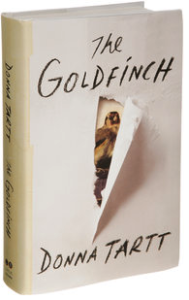
The Goldfinch by Donna Tartt
The Great Gatsby by F. Scott Fitzgerald
This Is How You Lose Her by Junot Diaz
Thriller
Crime thrillers, suspense, spy fiction, techno-thrillers—the subsets of thrillers each have their own logic and plot structures, settings and stakes. One thing they all share in common? Pacing. You want to speed through these stories for the heart-pumping action, psychological tension, and threats impending. Thrillers thrill; the goal of a thriller is to always keep readers guessing about what’s going to happen next. The fun, especially in some subgenres, is that you might even know what kind of thing is going to happen—a senator’s daughter goes missing—but you watch it unfold in a whole new way.
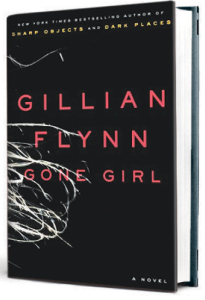
Books You Should Know...
Gone Girl by Gillian Flynn
Killing Floor by Lee Child
The Girl With The Dragon Tattoo by Stieg Larsson
Nonfiction
Nonfiction is the second main vein of literature that stands alongside fiction. The division is clear: nothing in nonfiction is invented. It is based in our world, and often topical, from history to environment, to memoir and biography, from medical research to sports writing. It can be educational, academic, or journalistic. Usually, nonfiction books uncover something we didn’t yet know about a person, place, or event. A moment in history as yet unexamined. A revisioning of an event based on new research. A diet, a health phenomenon, any how-to. Nonfiction is as diverse as the kingdom of life itself—fitting, since that’s its realm of focus.
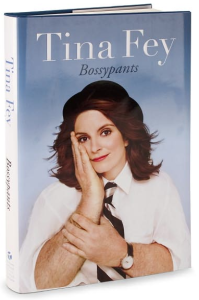
Books You Should Know...
The Tipping Point by Malcolm Gladwell
Pulphead by John Jeremiah Sullivan
Bossypants by Tina Fey
Science Fiction
Science fiction has been around as long as humans have been wondering where scientific innovation will take us in the future. You can think of science fiction as a genre that plays with imagined extensions of our technological progress—time travel, extraterrestrial encounters, accessing alternate universes, wormholes, any vision of the future and where our innovations could take us. Consider the author Isaac Asimov as the godfather of it, and George Orwell’s 1984 as gospel. While science fiction is idea-based, it also examines themes of our current world that may be imported into new ones—thus shedding light on our current moment along with picturing civilization 1000 years from now.
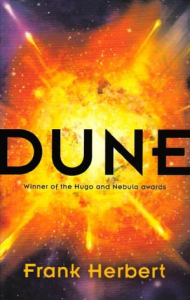
Books You Should Know...
Brave New World by Aldous Huxley
Dune by Frank Herbert
To Say Nothing of the Dog by Connie Willis
Fantasy
Where sci-fi is based on technological innovations, fantasy draws on supernatural phenomena to define the bounds of its worlds. Things that, no matter how advanced our rockets may be, could simply never exist—for example, Terry Pratchett’s Discworld, which exists supported by four elephants on the back of an enormous turtle swimming through space. Fantasy can also look like our world—Tolkien’s landscapes are not unlike our own—but the creatures that populate them are beyond the nature we know. Magic is a defining force in fantasy, and it often creates its own myths, folklore, and imagined circumstances that inspire some of the most devoted readers of any other genre.
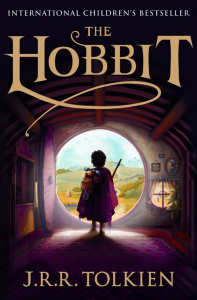
Books You Should Know...
The Hobbit by J.R. Tolkien
American Gods by Neil Gaiman
Jonathan Strange & Mr. Norrell by Susanna Clarke
Horror
That lurking feeling readers have when reading horror is key—horror is named for the feeling of dread, usually evoked by a frightening, nerve-wracking atmosphere. That fear can be created by both natural and supernatural elements. It can be the intrusion of one of these into the other that creates the scariest effect. Often, the plots of horror novels are metaphors for societal fears, or nightmares that plague us. Readers confront the darker side of life, and its authors explore it, from mortality, hauntings and possessions (spiritual or bacterial), or the depth of darkness that can be found in the forgotten corners of the everyday.
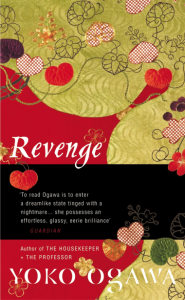
Books You Should Know...
The Shining by Stephen King
World War Z: An Oral History of the Zombie War by Max Brooks
Revenge by Yoko Ogawa
Poetry
Verse. Deviations of verse (prose poems). Form, free form, overlapping into visual art. Poetry is as much about heightened words, concepts, and concision as it is about lovely language, for which it has been traditionally considered. Despite the literary world’s fear that poetry is less and less relevant, we live in what is beyond doubt one of the most vibrant eras of poetry ever being written. There is a vast and varied sea of small presses and journals that consistently give us fresh, important, and artful voices.
Lighthead by Terrance Hayes
Autobiography of Red by Anne Carson
The Epic of Gilgamesh
Romance
One of the most...satisfying genres, readers come to romance for the highs, the lows, and everything and everywhere in between. Romance has clear-defined subgenres that vary in historical moment, setting, and dynamics between characters—but the chemistry is always the driving force as the tension, and relationship between the two, builds.
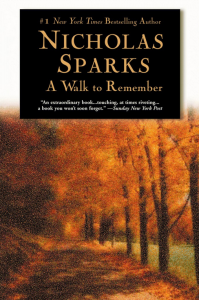
Books You Should Know...
Written in My Own Heart’s Blood by Diana Gabaldon
The Fifty Shades of Grey Trilogy by E.L. James
A Walk to Remember by Nicholas Sparks
YA, Middle Grade, and Children’s
These categories are defined entirely by the audience for which they’re written. YA, or Young Adult literature, is technically written for teenagers, though that readership isn’t limited by age. Plenty of adults read YA, too, leading to a recent new genre dubbed “New Adult.” YA tends to focus on coming-of-age, how young people negotiate big life changes and challenges, whether it’s a breakup, falling in love, or a cross-country move. Mostly, though, it’s about how the protagonists really come to know themselves.
Middle grade is geared toward the younger age category, before the hurdle of high school becomes the entire picture. Middle-grade tends toward the adventure, kids out on their own, and can often be a series, like The Boxcar Children.
Children’s books are bright, happy, and colorful. They are often educational and fun. They teach kids, and remind adults, how big and special the world really can be.
Books You Should Know...
Boy Meets Boy by David Levithan
Bridge to Terabithia by Katherine Paterson
Chicka Chicka Boom Boom by Bill Martin, Jr. and John Archambaul
Many great books weren't mentioned in the lists above. Let us know about them in the comments!




